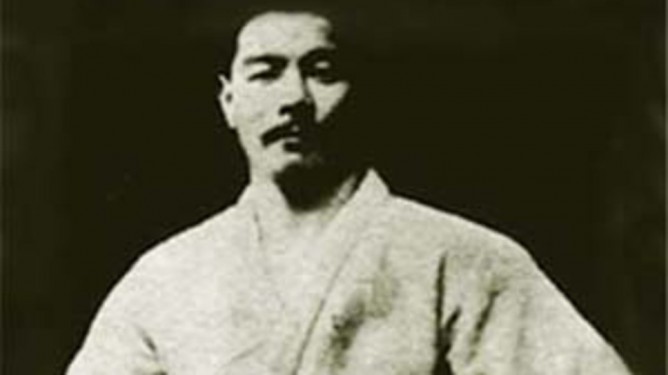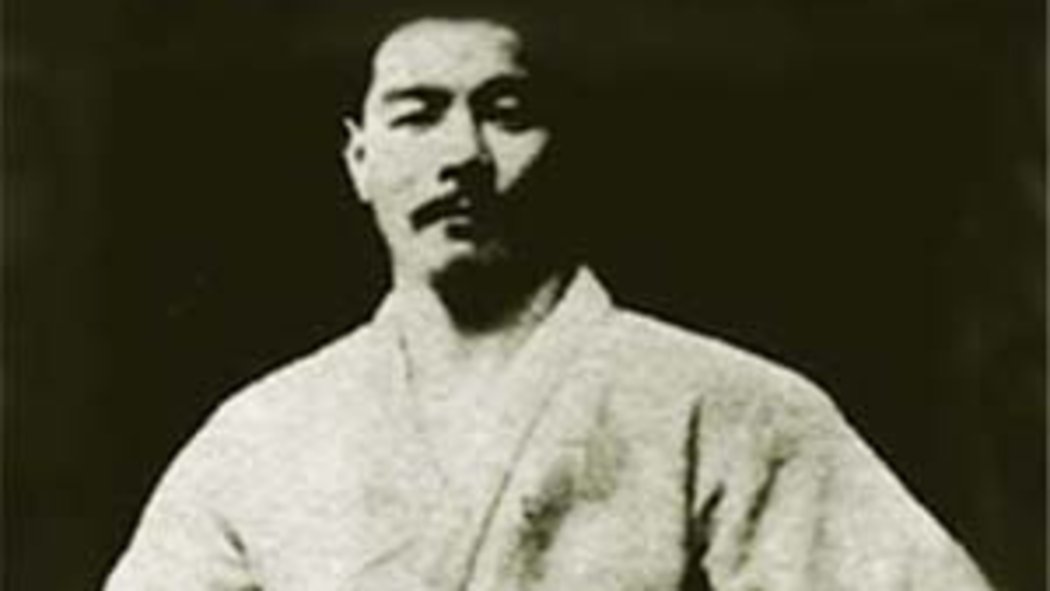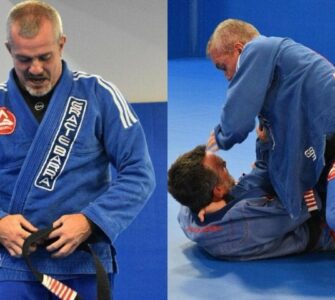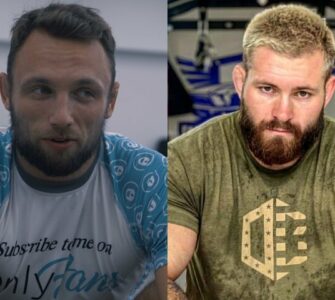Three years ago, Master Rigan Machado advised me to write the book about the connections of Jiu Jitsu from Japan to Brazil and the USA in regard to its Samurai origins. It became a great intellectual challenge and allowed me to uncover the roots of Jiu Jitsu and Kodokan Judo with the Bushido code also known as the Way of Warrior.
The power of jiu; as in jiu jitsu or judo, is the softness of water. Like water adapts to the environment and container that holds it together, this small glimpse into the book will illuminate how jiu has evolved through times and cultures but its essence has remained. Although historically, they hadn’t met, martial arts legends Jigoro Kano (Kodokan judo founder) and Carlos Gracie (BJJ pioneer) shared the message of bushido. The connector was Mitsuyo Maeda also known as Conde Koma.
Dr. Jigoro Kano was Conde Koma’s mentor. Dr. Kano had a big vision for bushido by sharing it through the art of judo. Dr. Kano believed in Conde Koma’s ability, according to Judo Legend/10th degree Kyuzo Mifune, ” Mr. Maeda (Conde Koma) was the toughest at the Kodokan during that time.” Conde Koma was given a unique mission from Kodokan; to help spread Bushido through express his Judo all over the world.
However, two significant challenges came up during Conde Koma’s mission abroad. In Japan at that time, demonstrations were seen as a highly cultivated expression of one’s ability; in the west however, challenge matches were more valued. The second hurdle was the Kodokan had a strict rule regarding not taking challenge matches for prize money. Standing 5’4” and 148 pounds, Conde Koma had choosen to take challenge matches. As a featherweight in modern sports BJJ he took on countless matches from all challengers with dignity and honor.

Mitsuyo Maeda
While Conde Koma was in Cuba spreading the art, funds were low and he decided to adapt like water. He consciously “broke the rules” that heavily influence Japanese society that pertain to following tradition/customs. Conde Koma chose to adapt in order to spread judo for making his living.
Conde Koma’s generous and caring personality as well as his accolades which earned him legendary status in martial arts carried the way of samurai, Bushido. He treated people from various cultures within the Bushido code. In his career, Mitsuyo Maeda had challenge matches and demonstrations in Cuba, Guatemala, San Salvador, Costa Rica, Peru, Chile, Honduras, Nicaragua, Ecuador, Bolivia, England, Belgium, Spain, and the U.S. Conde Koma embraced a larger world view and found a way to educate the public about the essence of kodokan judo.
One controversial challenge match took place at the United States Military Academy in West Point. Maeda met an opponent who was awarded points because it appeared that Maeda had been pinned during a wrestling maneuver. Because he failed to comprehend the significance of this, Maeda kept grappling and submitted the opponent by arm bar, unaware that those observing the match considered his continuing to fight as poor sportsmanship. Following the match, Maeda concluded that despite the controversial finish, his samurai code meant continuing on the battlefield as a statement of honor. Conde Koma’s life was an expression of Dr. Jigoro Kano’s message, “It is not important to be better than someone else, but to be better than yesterday.”
The two warriors in West Point took an unknown combat challenge with huge language, cultural and rule barriers. In addition to its benefits as a combat system, Jiu Jitsu has a far-reaching impact on the cultivation of character; one of the primary teachings of Dr. Jigoro Kano. As Grandmaster Carlos Gracie said powerfully, “There is no losing in jiu-jitsu, you either win or you learn.”
I want to Thanks to all Gracie, Machado families and Kodokan for the great helps on this book project. if you are interested in learning more and supporting the book please order here through amazon: Warrior in the Garden
Author’s Bio:
As a young boy in Japan, Nobuo Yagai was raised in the traditional art of kendo. Heavily influenced by the way of the samurai, his path in martial arts has taken him around the world and in 2002 the life of BJJ. Since then, he has forged life long friendships on the world stage of competition with some of the best of the best. He currently operates Way of Jiu Jitsu in Denver, Colorado and author of Warrior in the Garden. Through the famous stories of samurai, origins of BJJ, and his own martial arts journey, Rigan Machado’s only Japanese black belt, Nobuo Yagai will challenge you to take your BJJ off the mat and infuse ancient wisdom into your own practice. Way of Jiu Jitsu is more than just a book for martial artists, but for anyone who dares to make more than a hobby out of life.
Nobuo Yagai

















